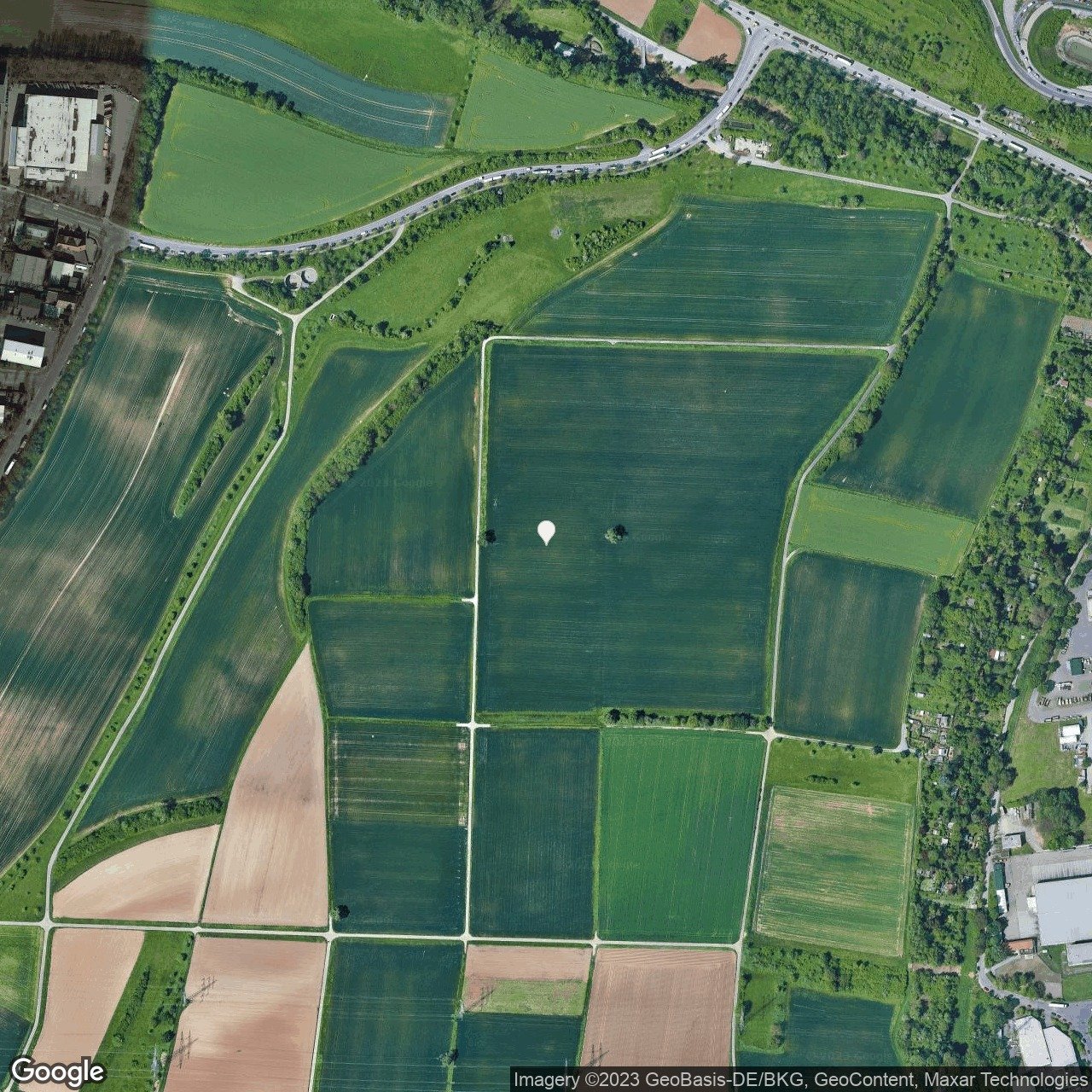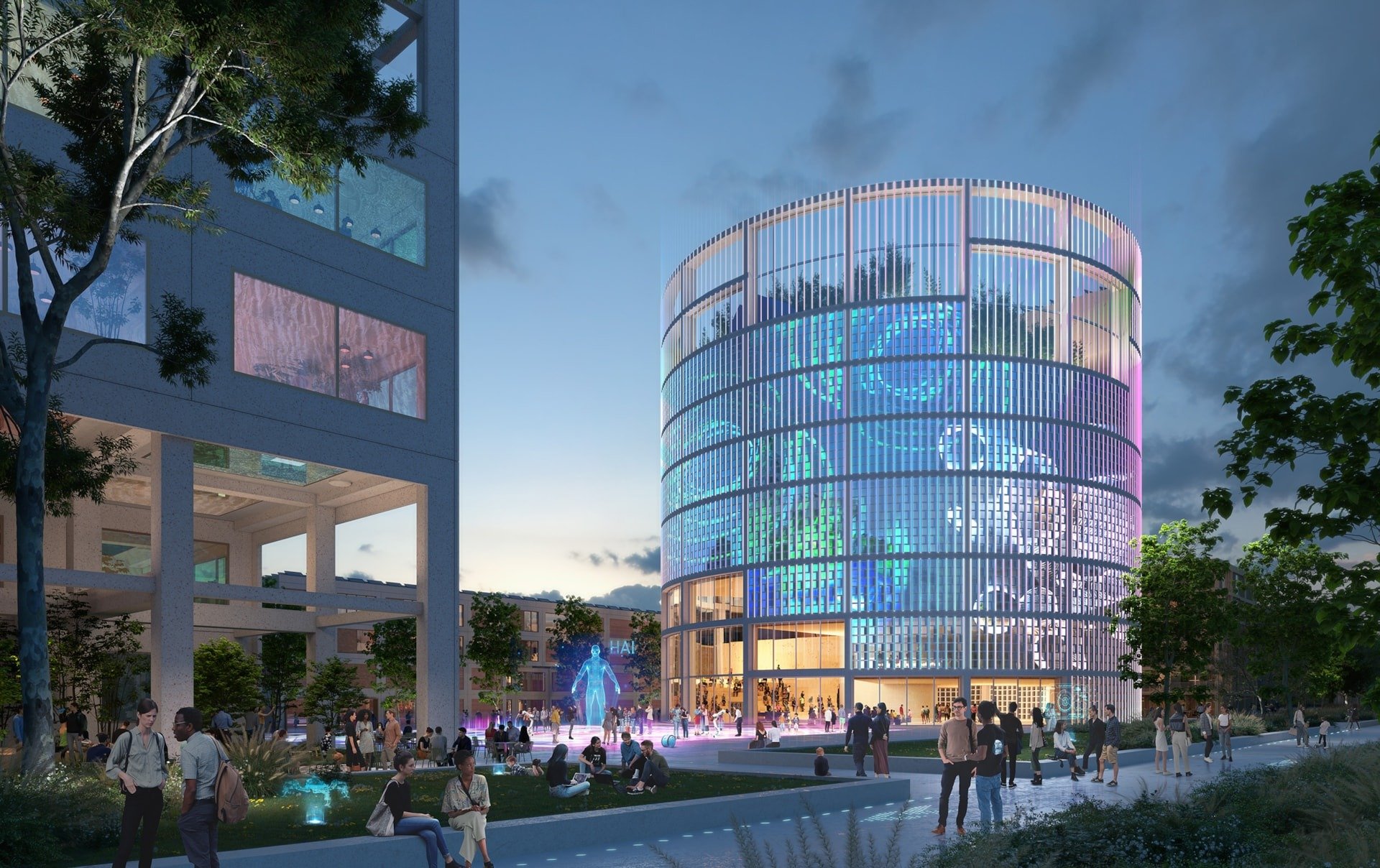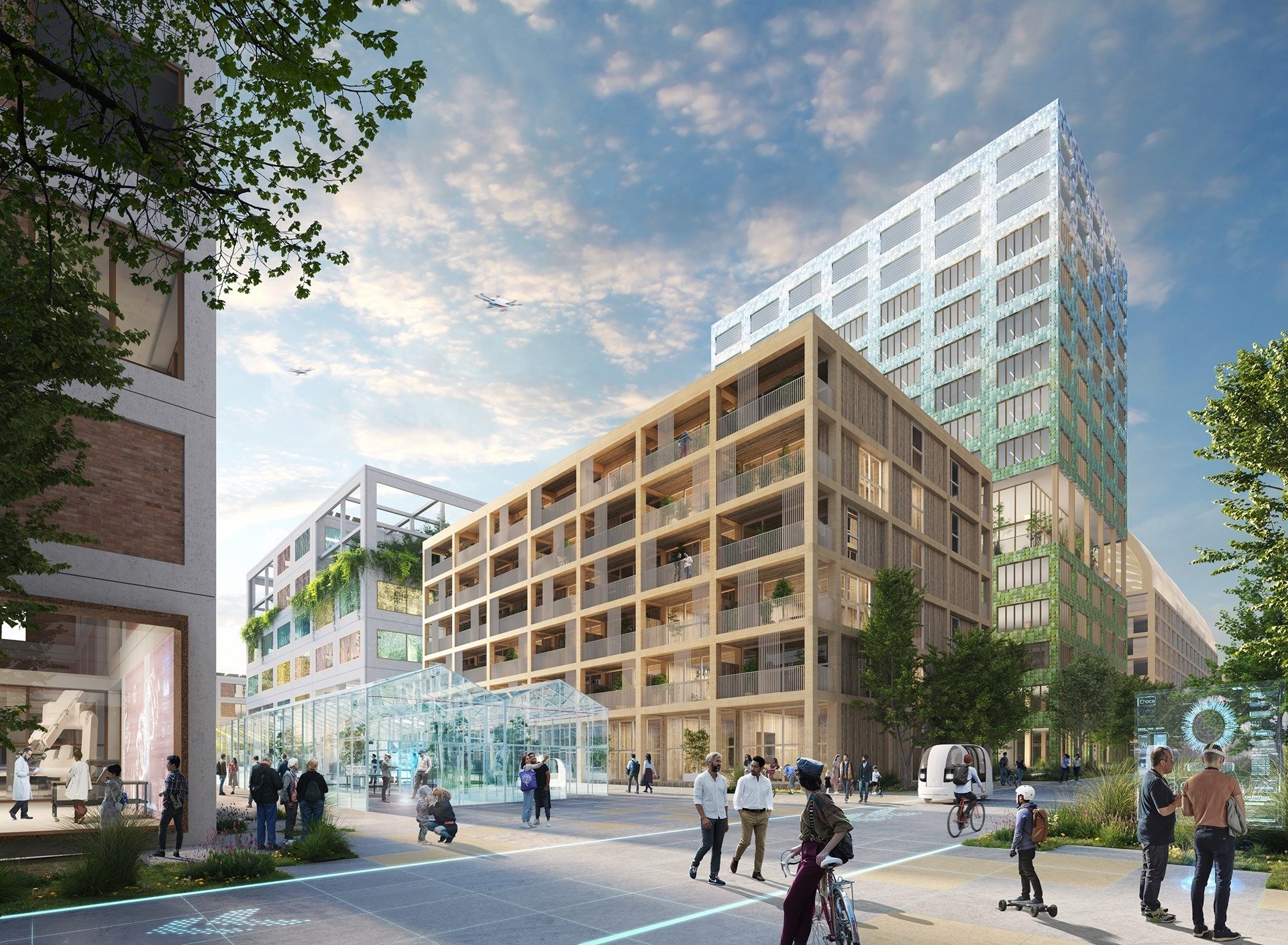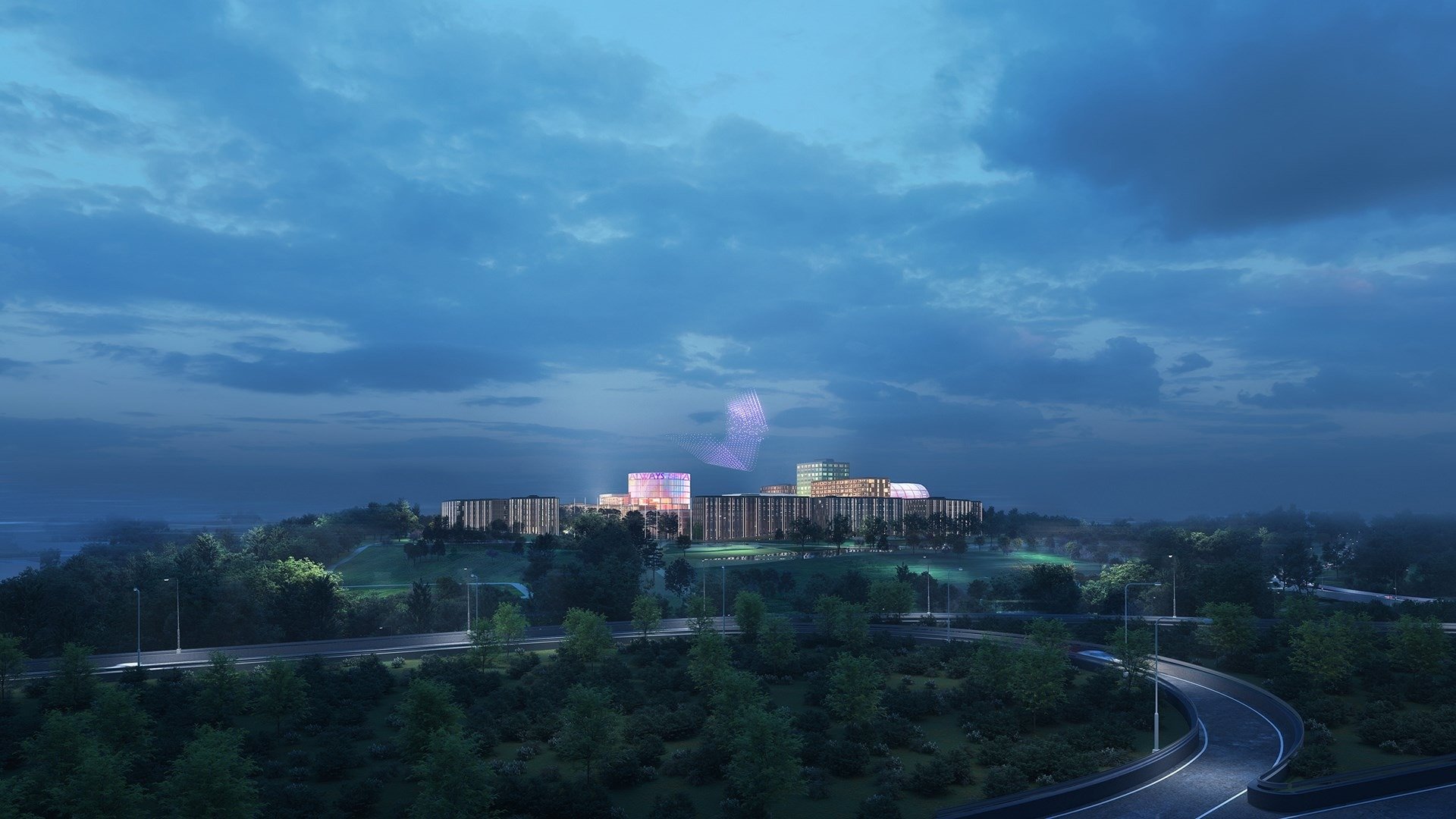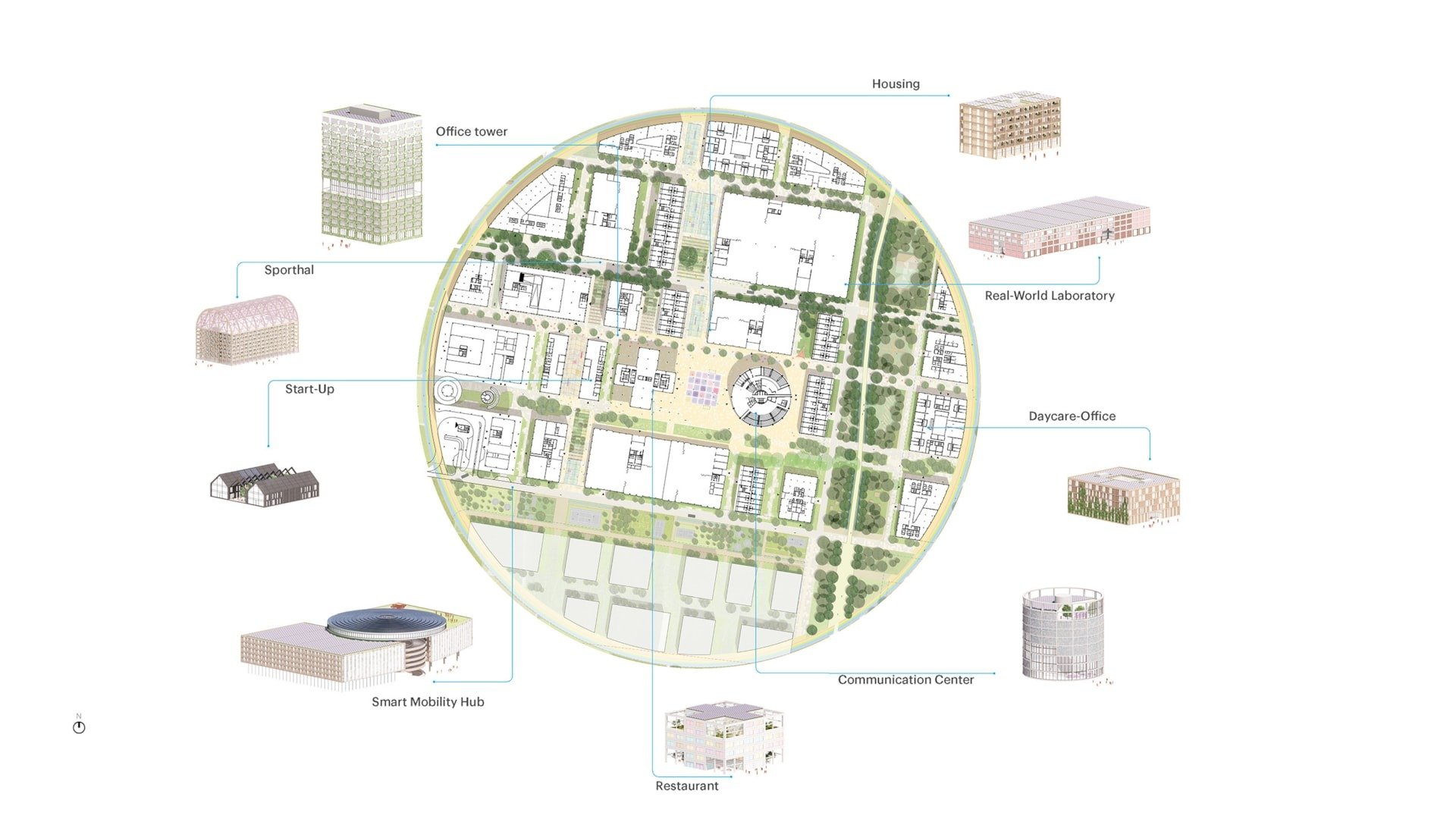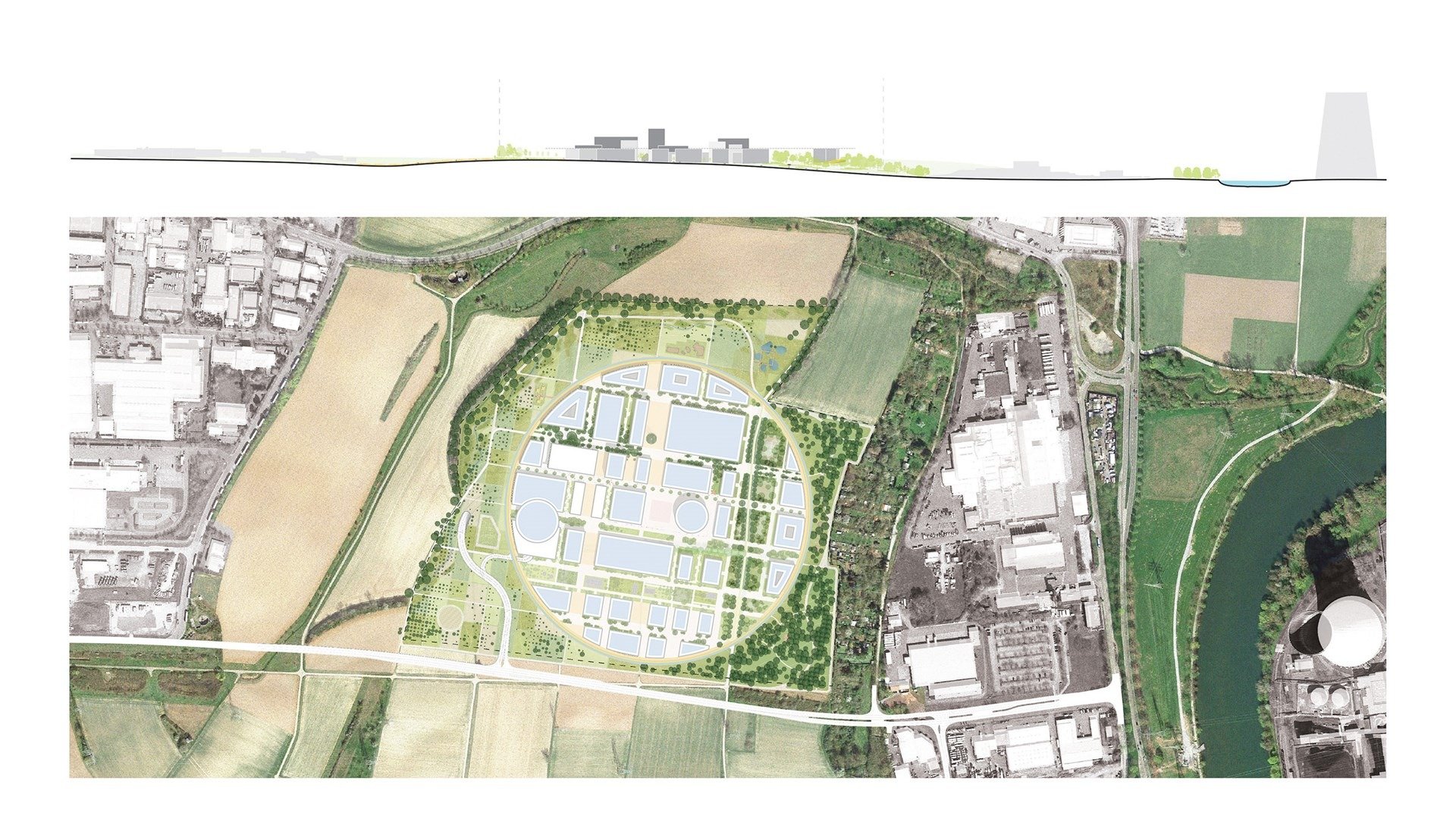INNOVATION PARK ARTIFICIAL INTELLIGENCE
MVRDV wins competition to design the Innovation Park Artificial Intelligence in Heilbronn with striking circular masterplan
A mixture of business campus, laboratories, a start-up innovation centre, housing, communication centre, and amenities such as a restaurant and kindergarten turn the Innovation Park Artificial Intelligence (Ipai) not only into an attractive place to work, but also a destination for curious visitors to see the development of world-changing technologies first hand, to interact with the people behind their creation, and to learn about the intentions behind their work. With its recognisable circular plan, the design aims to position the campus as a world-leading site for the development of AI technologies.
The masterplan design was developed for a consortium led by the municipality of Heilbronn and the Dieter Schwarz Foundation. With their desire to create a campus prestigious enough to compete with world-renowned tech hubs from Silicon Valley to Shenzhen, MVRDV’s design needed a bold, recognisable gesture. The decision to inscribe the buildings of the masterplan in a circle will make the Ipai Campus instantly recognisable, serving as a branding tool that raises its profile worldwide – even being visible in satellite photos.
Most of the buildings take simple rectangular forms and have consistent heights of 27 metres, making them efficient to construct with modular grids and bio-based materials. At the heart of the plan, a number of “specials” stand out from the crowd, with unique typologies, iconic forms, and taller structures marking the campus skyline. The most impactful of these is the communications centre, a round tower that sits on the central plaza at the heart of the plan and acts as a point of contact for the public to interact with the work of the campus, with space for events, exhibitions, conferences, a visitor centre, and a training centre. The programming of these spaces, which aims to entice the public to interact with AI, was conceived in cooperation with Berlin-based experts for placemaking REALACE.
“The developments we have seen recently in the field of AI demand the attention of people from all walks of life, and with this design we create a compact campus for this to happen. The striking form of the campus can help to propel it to an international stage, attracting world-class talent. Meanwhile, the welcoming and engaging atmosphere, even the recognisable appearance, make this place a destination where people can engage in the future of this technology. ”
The compact form of the campus leaves a large portion of the overall site available to intensify this location’s existing natural features with a parametric landscape design by LOLA. As a result, a part of Heilbronn that is currently grassland will see the growth of forests, orchards, and meadows, which will serve as test-beds for biodiversity- and agriculture-related AI tech. These natural elements of the design contribute significantly to the amount of carbon stored as part of the overall masterplan, reducing the carbon footprint of the campus.
During operation, the energy consumption of the campus will be around 80% lower than a typical campus of the same size. Bioclimatic façades and energy-efficient building services help to minimise the energy required to run the campus, while renewable energy is produced locally through wind turbines and solar panels and stored using batteries and ground-based heat and cold storage. Including the carbon stored by the design’s reforestation of the landscape and the embodied carbon in the buildings themselves, the plan is therefore projected to be 100% carbon-neutral over the course of its lifespan.
MVRDV
MVRDV was founded in 1993 by Winy Maas, Jacob van Rijs and Nathalie de Vries. Based in Rotterdam, Shanghai, Paris, Berlin, and New York, we have a global scope, providing solutions to contemporary architectural and urban issues in all regions of the world. Our highly collaborative, research-based design method involves clients, stakeholders, and experts from a wide range of fields from early on in the creative process. The results are exemplary, outspoken projects that enable our cities and landscapes to develop towards a better future.
The work of MVRDV is exhibited and published worldwide and has received numerous international awards. More than two hundred and eighty architects, designers and urbanists develop projects in a multi-disciplinary, collaborative design process that involves rigorous technical and creative investigation. MVRDV has an in-house Climate Team, which consults with design teams across the entire company to ensure the sustainability and resilience of our work. As a group of specialists, MVRDV NEXT develops and implements computational workflows and new technologies to rationalise designs, speed up processes, and make projects more efficient and adaptable in the face of change.
Credits
Client: Ipai Konsortium (Stadt Heilbronn, Dieter Schwarz Stiftung, Schwarz Gruppe)
Designer: MVRDV
Country: The Netherlands
Visualisation: Antonio Coco, Angelo La Delfa, Luana La Martina, Marco Fabri, Luis Moreno Perona, Ciprian Ionuț Buzdugan
Photographs: ©Ivo Haarman




